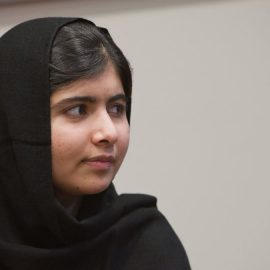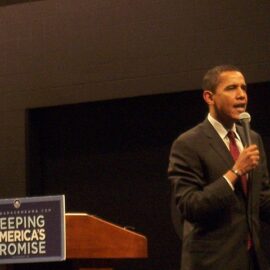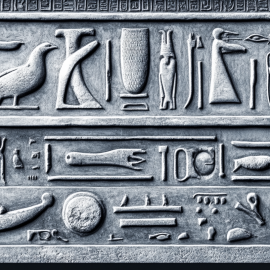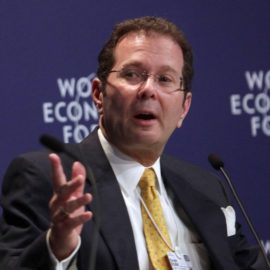
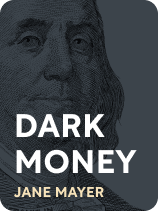
This article is an excerpt from the Shortform book guide to "Dark Money" by Jane Mayer. Shortform has the world's best summaries and analyses of books you should be reading.
Like this article? Sign up for a free trial here.
Who was Fred Koch? How did he make his money? How did he use it?
According to Jane Mayer, the Koch brothers’ political beliefs were influenced heavily by those of their father, Fred Koch. She discusses his influence and legacy in her book Dark Money.
Keep reading for Mayer’s synopsis of the financial and political life of Fred Koch.
Fred Koch: A Profile
Fred Koch (1900-1967) was a businessman who distrusted government and was strongly in favor of free markets. He made a fortune building oil refineries in Russia under Joseph Stalin’s regime as well as building a huge refinery in Germany during the Third Reich. This refinery produced the fuel needed by fighter planes, providing an essential piece of the Nazis’ warfaring capabilities.
(Shortform note: Fred Koch was not the only wealthy American industrialist to contribute to the Nazis’ war machine. Historical records show that the car companies Ford, General Motors, and Opel produced military vehicles and even warplanes for the Nazis and some of their German subsidiaries used forced labor in their production lines. IBM also produced machines and materials essential to the Nazi regime. Experts suggest that American companies’ facilitation of the Holocaust indicates that free market capitalism—like the kind Fred Koch taught his sons to believe in—is economically efficient but inherently prone to immorality and lack of accountability.)
Later, explains Mayer, Fred became one of the first members of the John Birch Society, a group that promoted conspiracy theories that Communists were trying to overthrow America. Among other extreme views, Koch believed and wrote that Communists had infiltrated American politics, were conspiring with Black people to start a race war, and that desegregation was part of that war.
(Shortform note: While the John Birch Society’s influence and membership dwindled during the second half of the twentieth century, experts have noted that it’s made a resurgence in recent years. They suggest that the society, long-known for its paranoid conspiracy theories, is made of the same extremism as the QAnon movement, which fueled the deadly attack on the US capitol on January 6, 2021.)
According to Mayer, Fred Koch set up a charitable lead trust so he could avoid inheritance taxes when passing on his fortune to his sons. Such a trust allowed someone to pass on their wealth to their children tax-free as long as the interest accrued on that wealth went to a charity for a set amount of time (in the case of Fred Koch’s trust, 20 years). However, a “charity” could be defined broadly and could include donations to the subjects’ private foundations. This way, they could avoid taxes and control what was done with the money they donated while also appearing to the public as generous philanthropists.
(Shortform note: Many of the wealthy elite use philanthropy to maintain a positive public image, but critics object that their philanthropy might exacerbate the societal problems they appear to be trying to fix, resulting in a net loss for society. The past two decades have seen a massive increase in philanthropic giving, but experts note that this has not correlated with a decrease in economic inequality. Rather, it seems to reinforce inequality and benefit the rich, as the majority of charitable donations go to universities and other institutions that are already wealthy while the poor continue to be neglected. This was also the case with Fred Koch’s charitable lead trust that only benefited his sons and let them avoid taxes that could have gone toward public works.)
Many billionaires shared Koch’s views, opposing taxes—especially income and estate taxes, which have a heavier impact on the wealthy than on the poor—and claiming it was unfair in principle for the wealthy to pay a greater share than the poor. At the same time, they took full advantage of things like tax credits and government subsidies, which they claimed to oppose.
(Shortform note: The majority of Americans disagree with the Kochs’ attitude toward taxes and instead feel that the ultra-wealthy should be taxed more than they currently are. Some members of the rich also believe they should be taxed more heavily. In light of the COVID-19 pandemic, which has widened the gap between the rich and the poor, groups like Millionaires for Humanity have called for a global wealth tax on the super-rich, noting that a progressive tax of just 2-5% on the wealthy could provide over $2.5 trillion per year.)

———End of Preview———
Like what you just read? Read the rest of the world's best book summary and analysis of Jane Mayer's "Dark Money" at Shortform.
Here's what you'll find in our full Dark Money summary:
- How a group of wealthy individuals has legitimized far-right beliefs in America
- A look at Charles and David Koch's views and tactics
- The influence dark money has had on American politics and society

